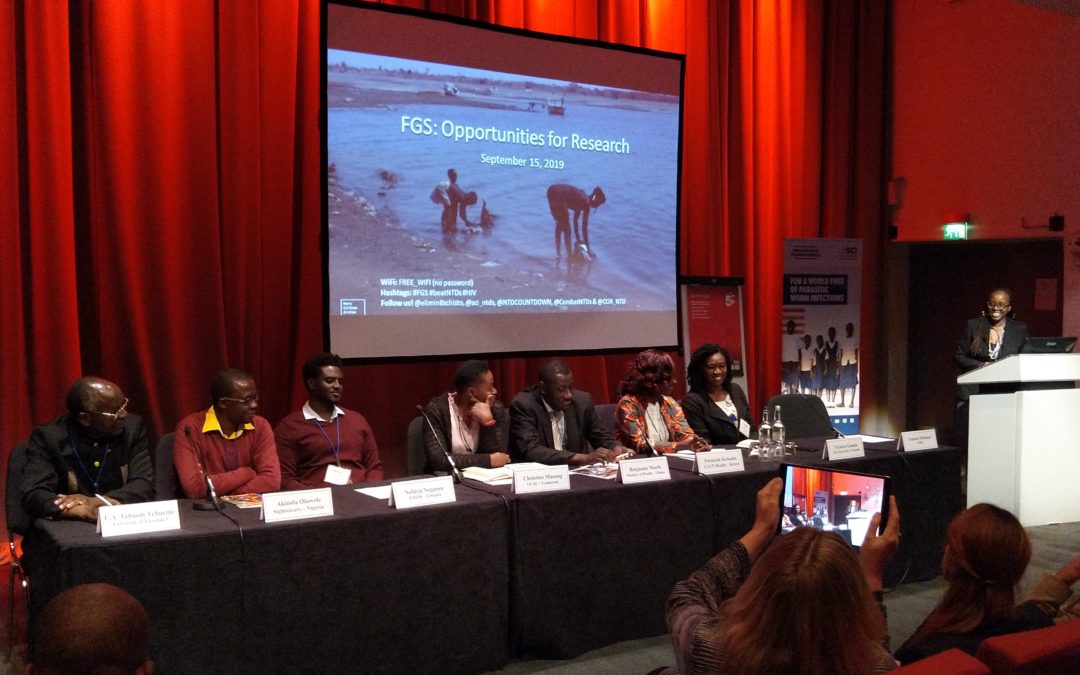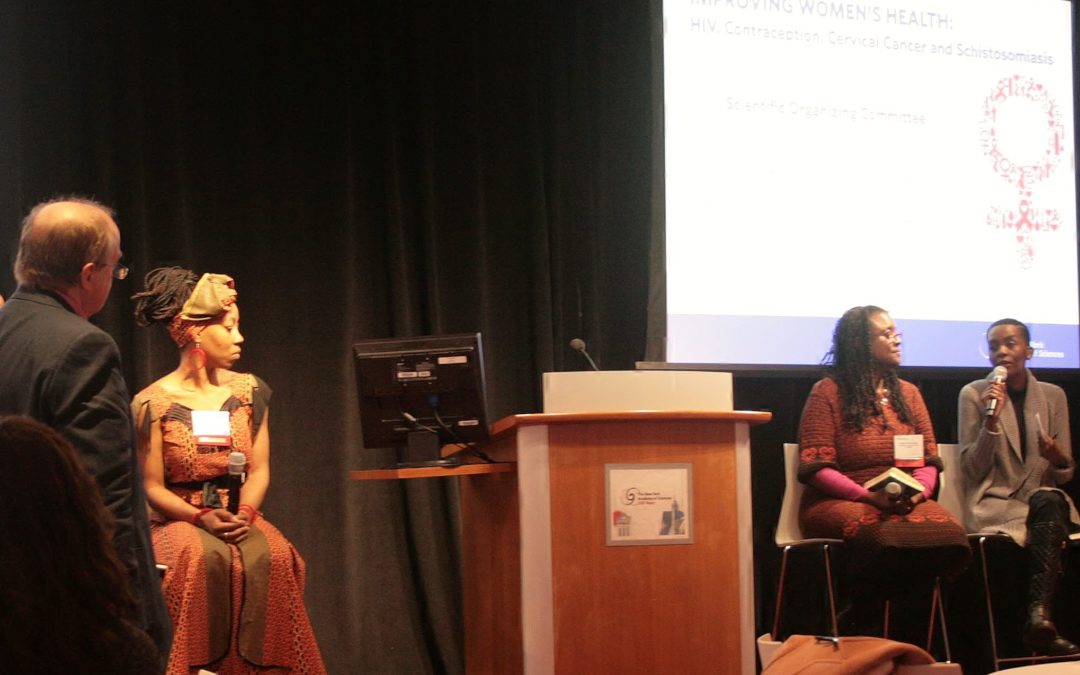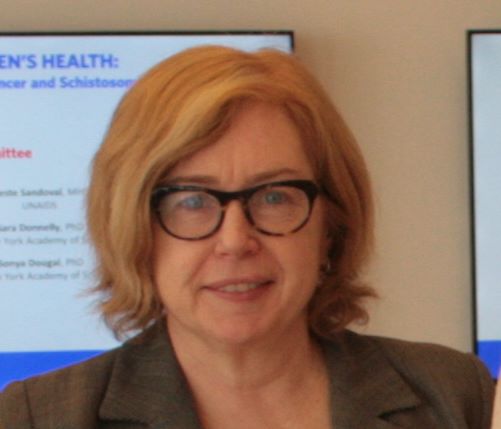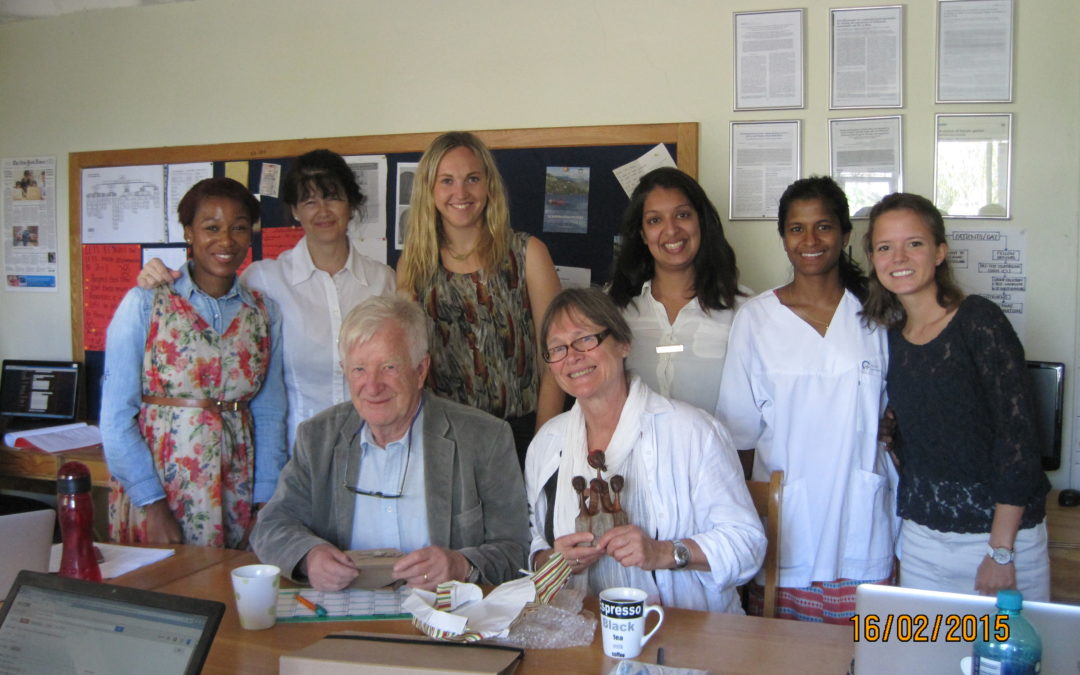
Sep 25, 2019
Patients with Female Genital Schistosomiasis (FGS) are not being diagnosed, neither in rural health care nor in university hospitals. We are on the brink of making FGS diagnosis accessible where the patients are: (a) the WHO Pocket Atlas for FGS has been given to every African country but for the Portuguese version, which is in press. (b) clinicians have started using or WHO Pocket Atlas for FGS. (c) the UNAIDS has invited FGS diagnosis, prevention and management into their clinics. (d) FGS has for the first time been incorporated into the health professionals’ curricula, starting with nurses’ curriculum in Ethiopia. (e) more than 400 gynaecologists have had it as part of their colposcopy training in KwaZulu-Natal, South Africa. Dr Pamela Mbabazi from the World Health Organisation leads a session on Female Genital Schistosomiasis. In the panel Professor Tchuem-tchuente and a group of...
Sep 13, 2019
Apr 4, 2019
Hotez PJ, Harrison W, Fenwick A, Bustinduy AL, Ducker C, Sabina Mbabazi P, Engels D, Kjetland EF. PLoS Negl Trop Dis. 2019 Apr 4;13(4):e0007025. Download publication

Mar 15, 2018
Coinciding with the United Nations Commission on the Status of Women, United Nations Joints Programme for HIV and AIDS (UNAIDS) held a meeting at New York Academy of Science to highlight recent advances and point out areas for synergy and collaboration with UNAIDS in three areas: (1) cervical cancer, (2) hormonal contraception, (3) female genital schistosomiasis (FGS). These three issues are currently not part of any HIV programme. Female Genital Schistosomiasis (Bilharzia, FGS) is a neglected tropical disease affecting approximately 55 million adolescent girls and women. Treatment for Bilharzia may reduce the risk of HIV infection, so there are opportunities for collaboration between HIV programmes and Bilharzia Control Programmes. HIV and FGS are “converging epidemics” which suffer from “lack of attention and lack of investment” said Professor Terry McGovern Similarly, in HIV prevention programmes there are possibilities to screen and prevent cervical cancer in women living with HIV. They are more likely to be infected with human papillomavirus (HPV), and up to 5 times more likely to develop both early and invasive cancers caused by HPV. Furthermore, a large randomised trial is underway and women and National HIV programmes are discussing the difficult choices that need to be made if the trial confirms certain types of contraceptives increase the risk for HIV. Organising committee: UNAIDS: Peter Godfrey-Faussett and Celeste Sandoval, WHO: Shona Dalal, CDC: Pragna Patel, NYAS: Sonya Dougal Talks: Annah Sango, Zimbabwe Young Positives Chelsea Polis, PhD, The Guttmacher Institute Danielle Engel, MA, United Nations Population Fund (UNFPA) Ebony Johnson, MHS, Global Coalition on Women and AIDS, Athena Network Erna Milunka Kojic, MD, Mount Sinai St Luke’s, Mount Sinai West,...

Mar 15, 2018
“The data is compelling, Female Genital Schistosomiasis should be there among the “10 Commitments”. It makes total sense to me that there is a link between FGS and HIV transmission.” Professor Terry Mc Govern, Columbia University Medical Center. Professor Terry McGovern founded the HIV Law Project in 1989 where she served as its director until 1999. In 1999, she was awarded an Open Society Institute Fellowship. From 2001 she was the Director of the Women’s Health and Human Rights Advocacy Project. Currently, she teaches Health and Human Rights and Environmental Justice. Professor McGovern successfully litigated numerous cases in UNited Stated including making the Social Security Administration expand HIV-related disability criteria so that women and low income individuals could qualify for Medicaid and social security, and a guideline restricting the participation of women of childbearing potential in early phases of clinical trials. From 2001, she has worked to improve the reproductive and healthcare of low- income women, and work on issues related to fundamentalisms and the impact on women’s human...

Feb 16, 2015
The Norwegian Centre for Imported and Tropical Diseases has received and sent number of PhD candidates, Masters students, visiting doctors and technical staff to and from South Africa. Head of Department, Professor Bjørn Myrvang and his wife Vigdis, came to meet the research team and BRIGHT students and...





